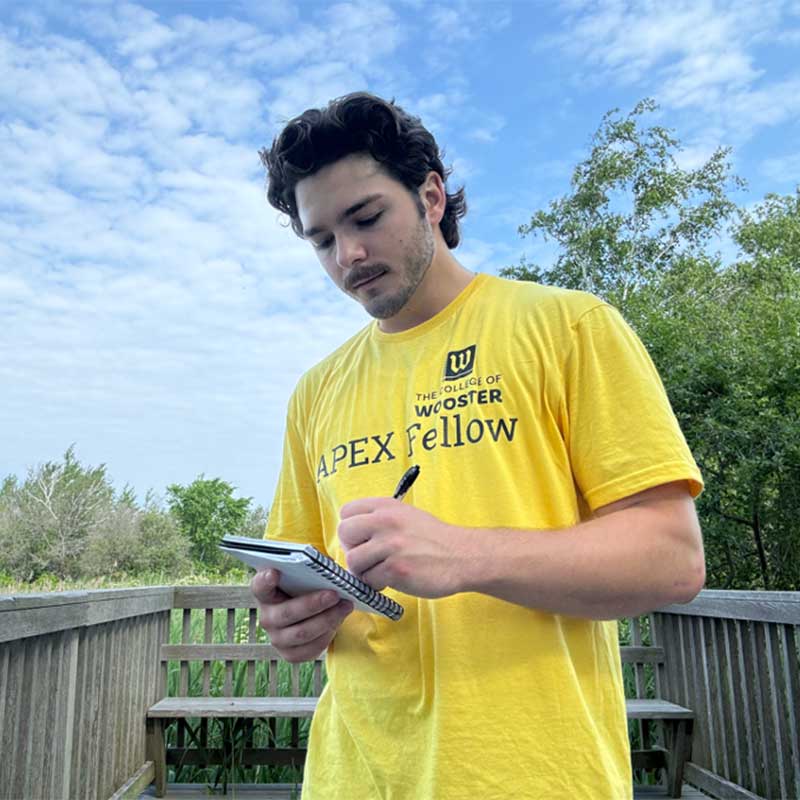
Economics major uses knowledge to support environmental causes in APEX Fellowship

Leo Widtmann ’25 was looking for an opportunity to use his classroom knowledge to help with environmental issues, and he found the perfect opportunity in his APEX Fellowship with the Massachusetts Department of Conservation and Recreation. An economics major and statistical and data sciences minor who also plays on the Fighting Scots baseball team, Widtmann spent the summer identifying marshland ecosystem services, quantifying their value, and developing a process to assess habitat protection for rare birds. Widtmann had the opportunity to work both in an office environment and go out in the field to various sites that the department managed. Through his APEX Fellowship, Widtmann learned that he wants to continue working to use economics to solve environmental problems and gained a new appreciation for public parks and nature preserves.
“My internship this summer has cemented the idea that I love using economics to help with environmental issues. I believe that I have left the summer with a great opportunity to continue working with the Department of Conservation and Recreation after I graduate.”
—Leo Widtmann ’25
Q: How did you learn about the internship opportunity for your APEX Fellowship?
Widtmann: I learned about the department through a family friend. It was the perfect opportunity to use my education in economics to help with environmental issues.
Q: What interests you most about the work you did?
Widtmann: It was fascinating to learn just how valuable public parks and reservations are, even if we don’t think about it every day. Funding the conservation of ecosystems can help save a significant amount of funding in things from water purification to flood control infrastructure. Most of my days were spent reviewing publications on the value of ecosystems and comparing them to the sites that the department managed. I also was able to get out into the field and get first-hand information from the individuals who manage different state parks and reservations.
Q: Who was your fellowship mentor and how did they help you to succeed in this position?
Widtmann: Brooke Krause, associate professor of business economics and economics, was my fellowship mentor. She was a fantastic mentor and professor to communicate with throughout my summer. She gave great feedback on my weekly reflections and helped give me some insightful career advice and recommendations for after graduation.
Q: What are some skills you’ve learned that you see yourself carrying forward in your career?
Widtmann: As the only economist in both of the teams I worked with this summer, the biggest thing I learned how to do was to relay information that may be very technical in a way that everyone can understand.
Q: How has the internship helped you to see what’s next for you?
Widtmann: My internship this summer has cemented the idea that I love using economics to help with environmental issues. I believe that I have left the summer with a great opportunity to continue working with the Department of Conservation and Recreation after I graduate.
Posted in Experiential Learning, Showcase Stories 2024 on August 10, 2024.
Related Posts
Related Areas of Study
Statistical & Data Sciences
Use statistics, math, and computer science to gain insights into data and solve real-world problems.
Major MinorEnvironmental Studies
Natural sciences, social sciences, and humanities courses combine for those who want to be part of environmental solutions
Major MinorEconomics
Learn how humans organize to sustain life and enhance its quality from a diversity of economic perspectives
Major Minor

